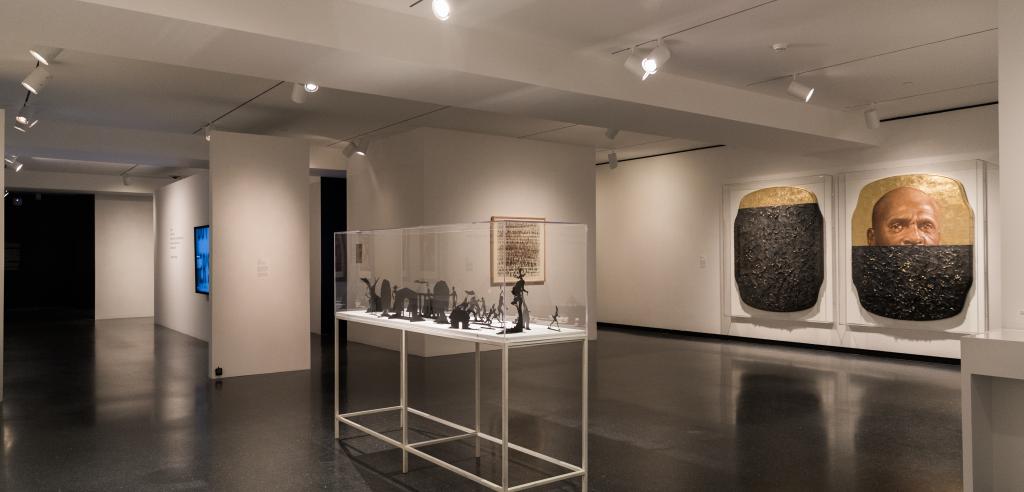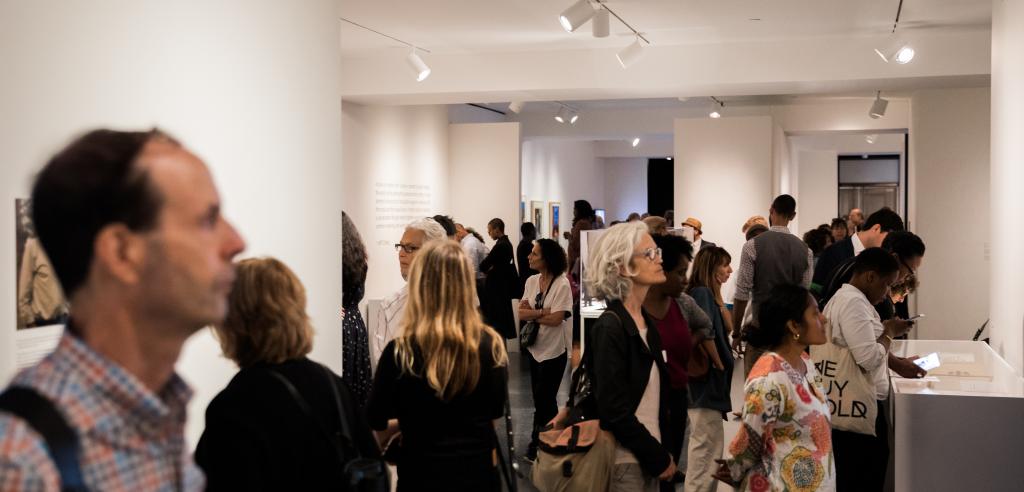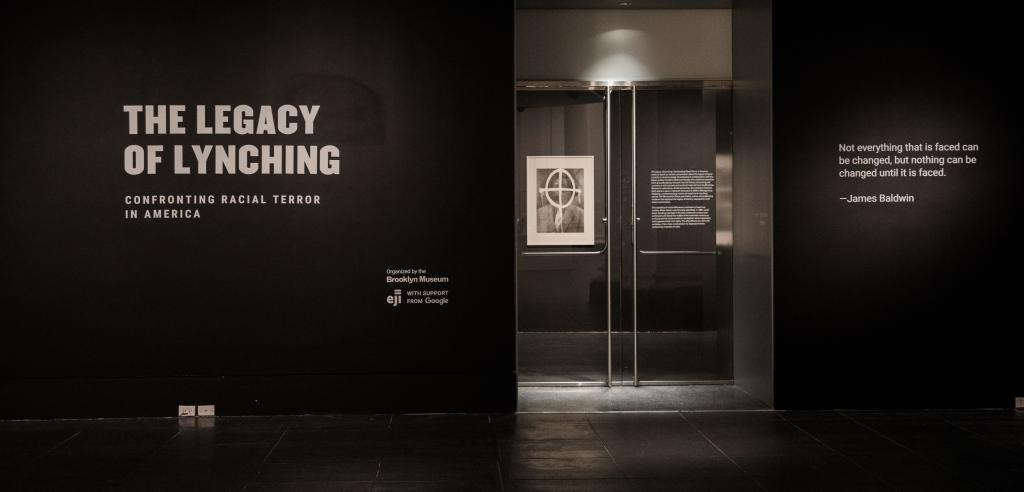The Legacy of Lynching: Confronting Racial Terror in America opened yesterday at the Brooklyn Museum in New York, and will run through September 3. Coordinated in collaboration with EJI and Google, the exhibition presents EJI’s groundbreaking research into the history of racial terror lynchings and connects it to artworks and archival material from the Brooklyn Museum’s collections.
EJI’s multi-year investigation into lynching in 12 Southern states during the period between Reconstruction and World War II documented more than 4000 racial terror lynchings of African Americans in Alabama, Arkansas, Florida, Georgia, Kentucky, Louisiana, Mississippi, North Carolina, South Carolina, Tennessee, Texas, and Virginia between 1877 and 1950 – at least 800 more lynchings of Black people in these states than previously reported in the most comprehensive work done on lynching to date.
In 2017, EJI supplemented this research by documenting racial terror lynchings outside the South, and found these acts of violence were most common in eight states: Illinois, Indiana, Kansas, Maryland, Missouri, Ohio, Oklahoma, and West Virginia.
This summer, EJI launched Lynching in America, a new interactive digital experience created in partnership with Google. The website brings together EJI’s extensive research and resulting data with the stories of lynching victims, as told by their descendants through audio stories and short documentaries like Uprooted. Visitors can also explore interactive maps that include the locations of racial terror lynchings and in-depth profiles of people whose lives were forever altered by these acts of violence. Data visualizations track the Great Migration, a time when millions of African Americans fled the terror of the South to find refuge in the North and West, shaping the demographic geography of our country today.
The exhibition showcases the work of six African American photographers commissioned by EJI to illustrate the oral histories on view—Melissa Bunni Elian, Kris Graves, Raymond Thompson, Andre Wagner, Bee Walker, and Rog Walker—and the documentary Uprooted, as well as Museum collection artists whose practices respond to racism in the United States in several forms: Jacob Lawrence, Kara Walker, Mark Bradford, Clarissa T. Sligh, Glenn Ligon, Elizabeth Catlett, Sanford Biggers, Titus Kaphar, and Dread Scott.
The exhibition also features EJI’s plans to open a national monument in 2018 in Montgomery, Alabama, named The National Memorial for Peace and Justice, commemorating victims of racial terror lynching. The memorial will be accompanied by a museum, From Enslavement to Mass Incarceration, exploring the legacy of slavery, segregation, and mass incarceration.
Last night, the museum hosted a special preview of the exhibition and a discussion among Bryan Stevenson, founder of the Equal Justice Initiative, and artists Sanford Biggers and Glenn Ligon, moderated by poet, essayist, and playwright Elizabeth Alexander.


